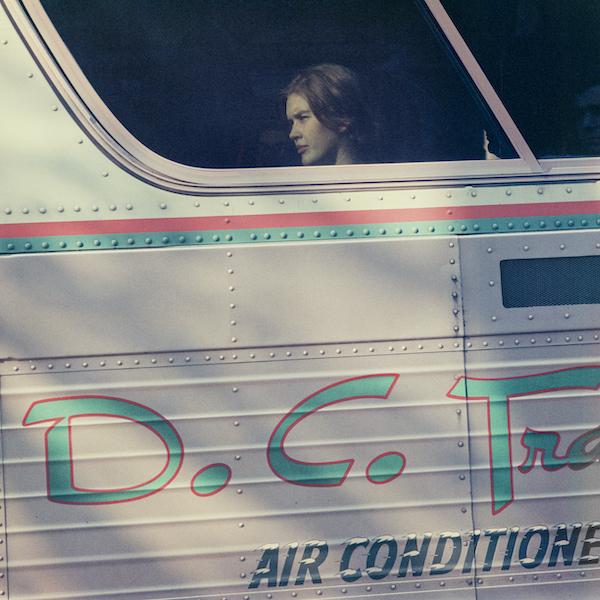
Bus Station, Washington, 1966
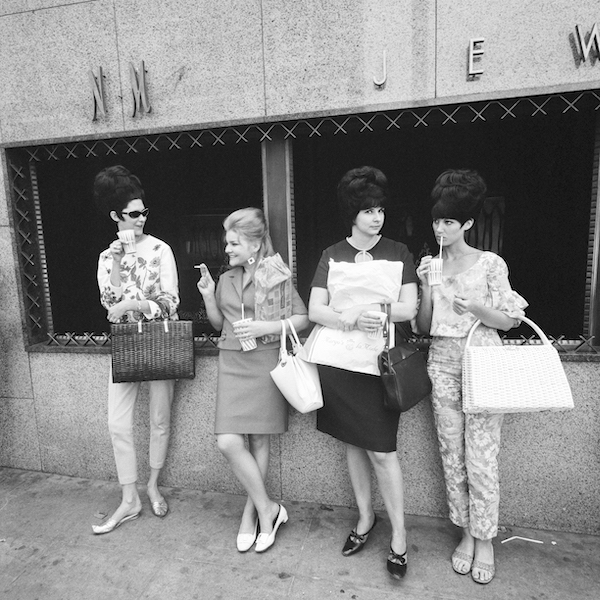
Neiman Marcus, Dallas, 1967
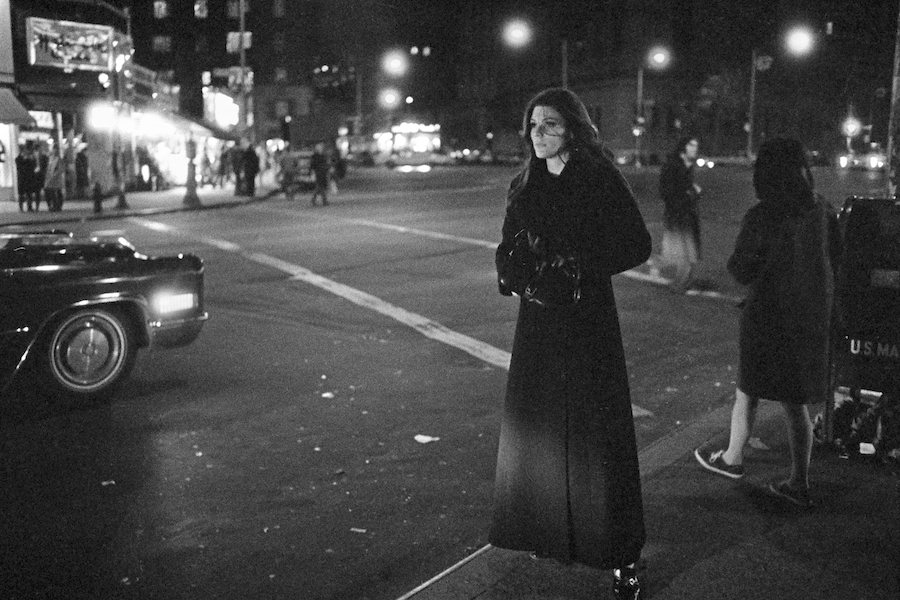
Street in Washington night, 1969
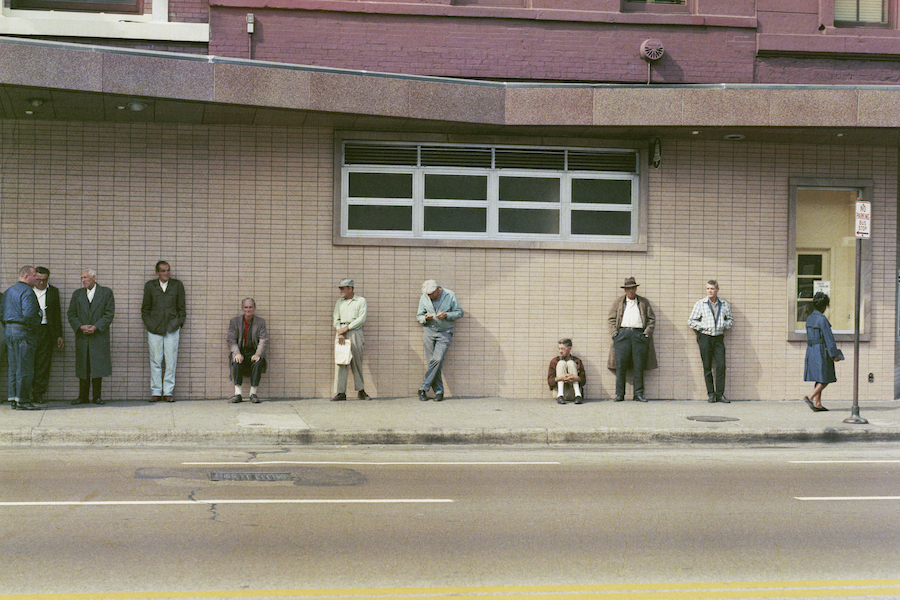
Job centre queue, Chicago, 1966
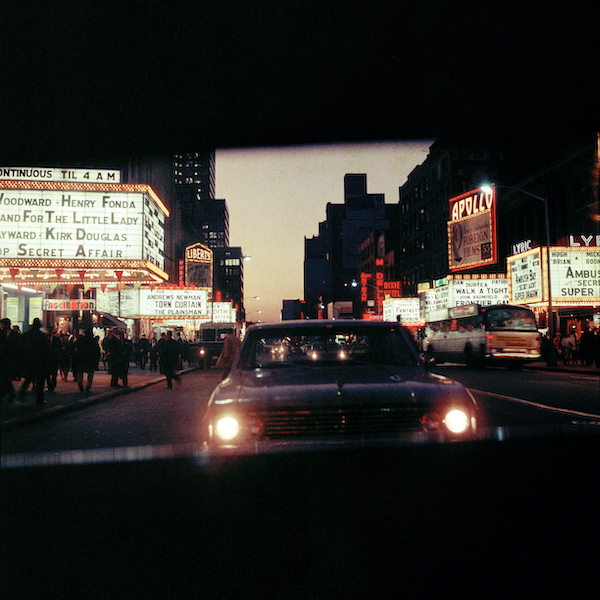
42nd Street at night, New York, 1966
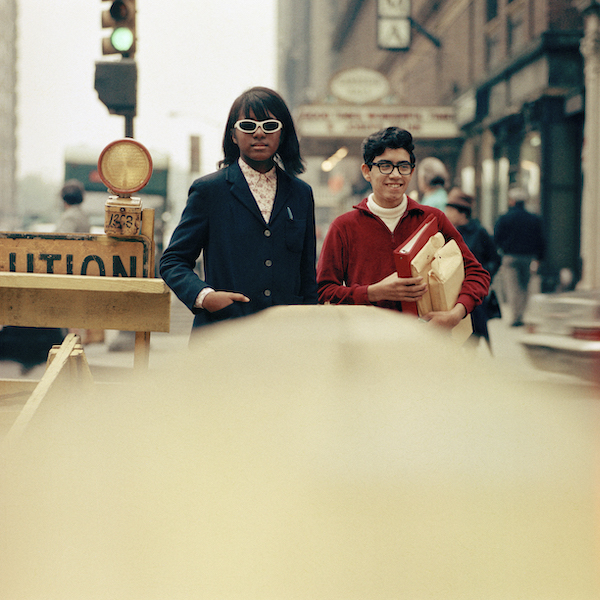
Fashion Students, New York, 1966
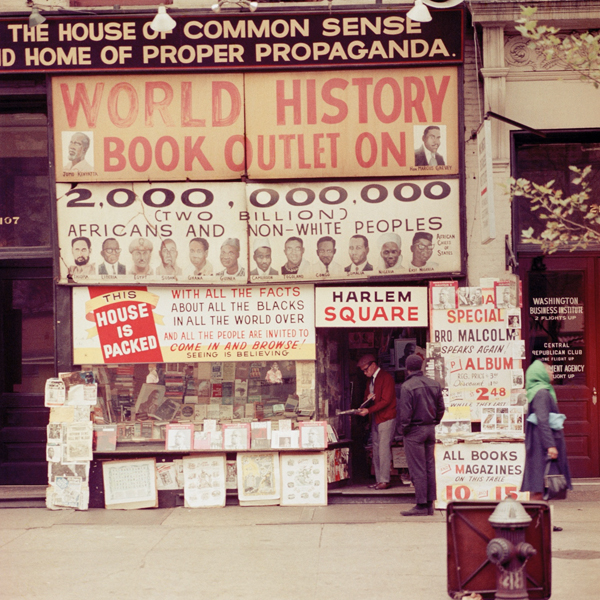
Nation of Islam book store, Harlem, New York, 1966
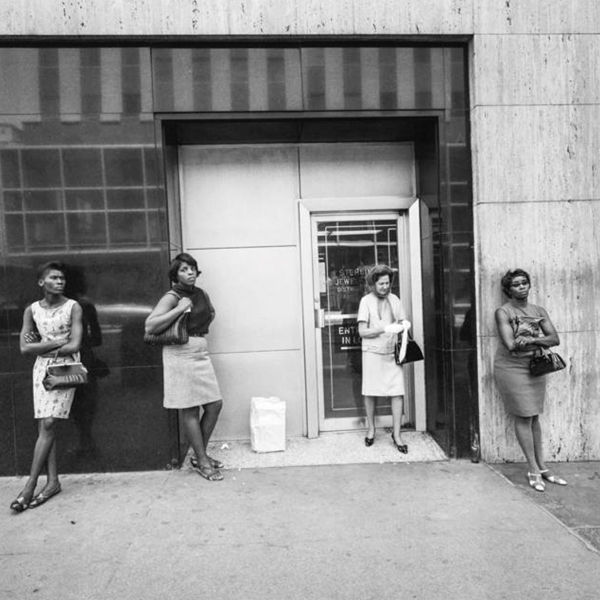
Jewellery store, Dallas, 1967
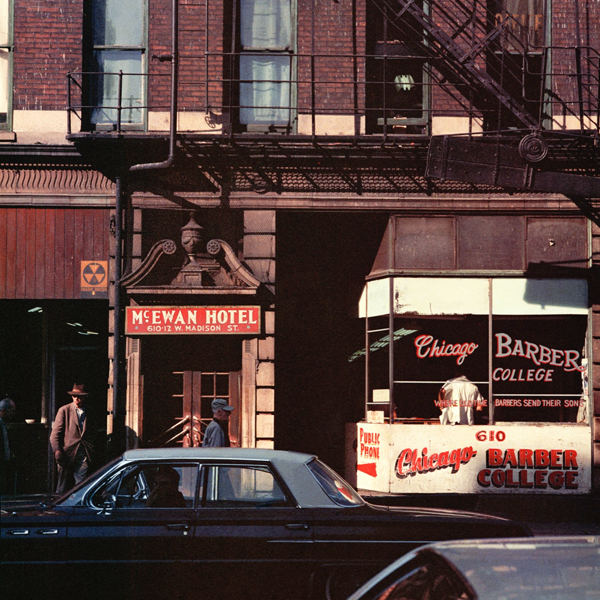
Barber College, Chicago, 1966
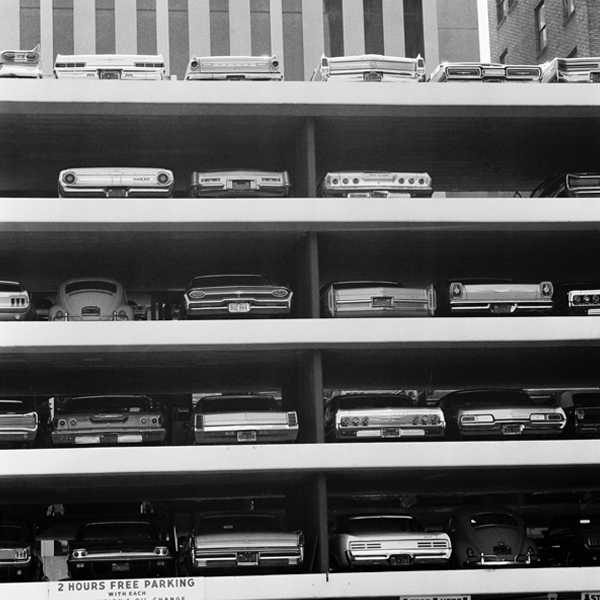
Parking lot, Los Angeles, 1967
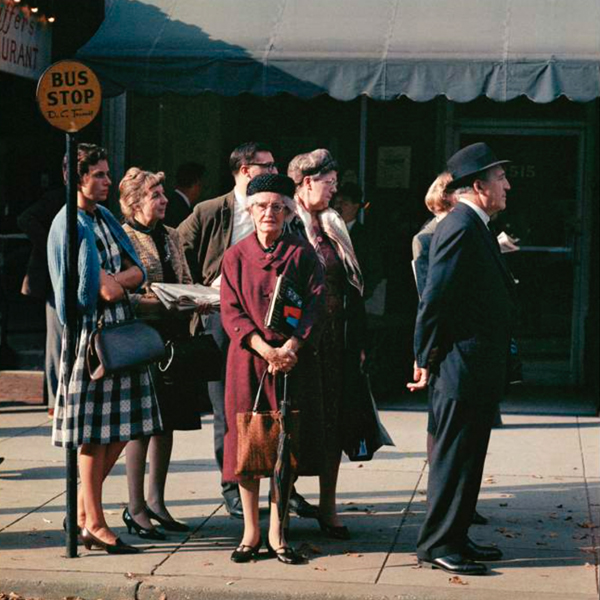
Bus stop, Washington, 1966
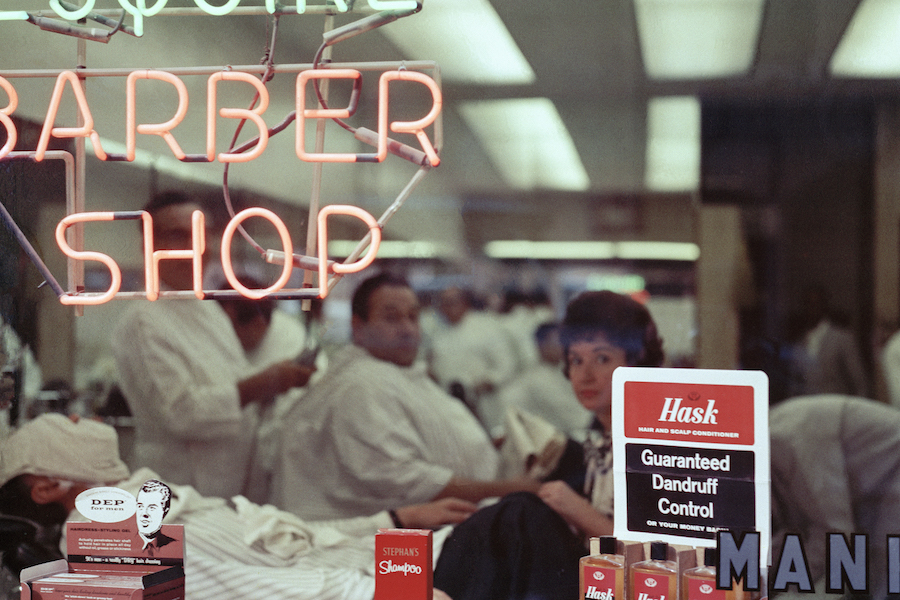
Barber shop neon, Chicago, 1966
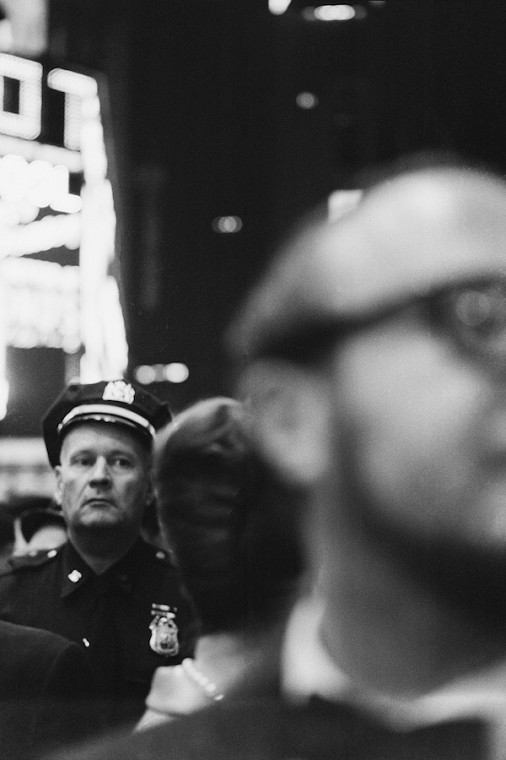
Movie Premiere, Broadway, New York, 1966
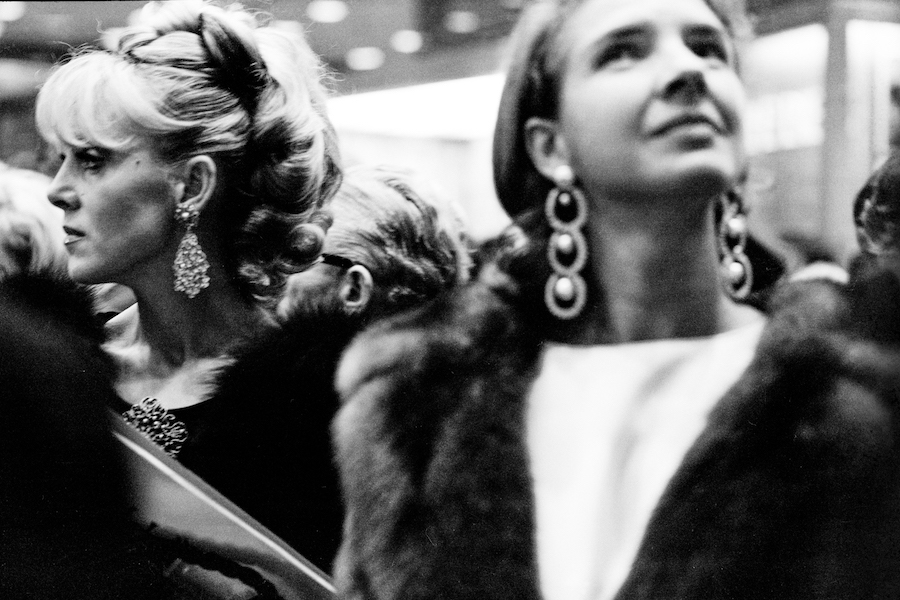
Ladies at Movie Premiere, Broadway, New York, 1966
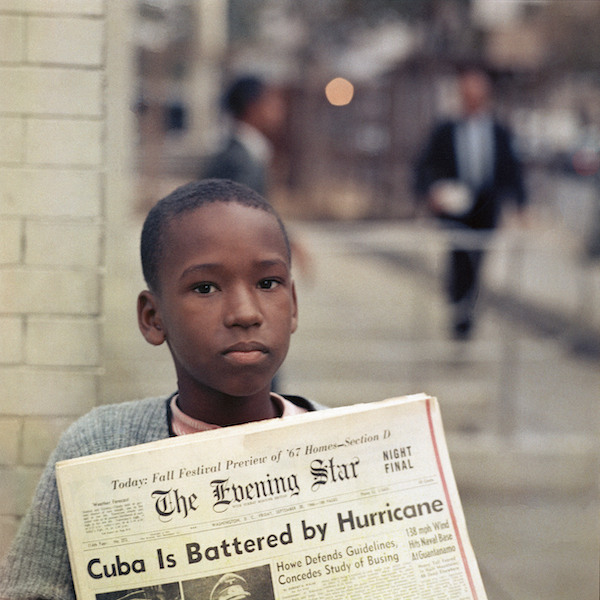
Evening Star Seller, Washington, 1966
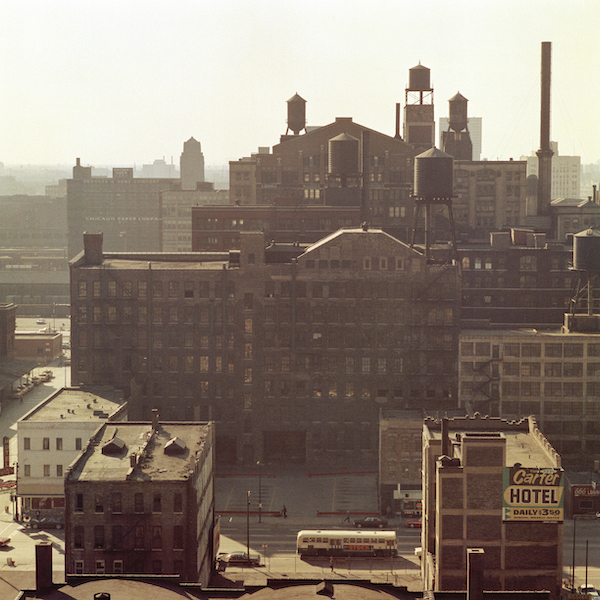
Factories, Chicago, 1966
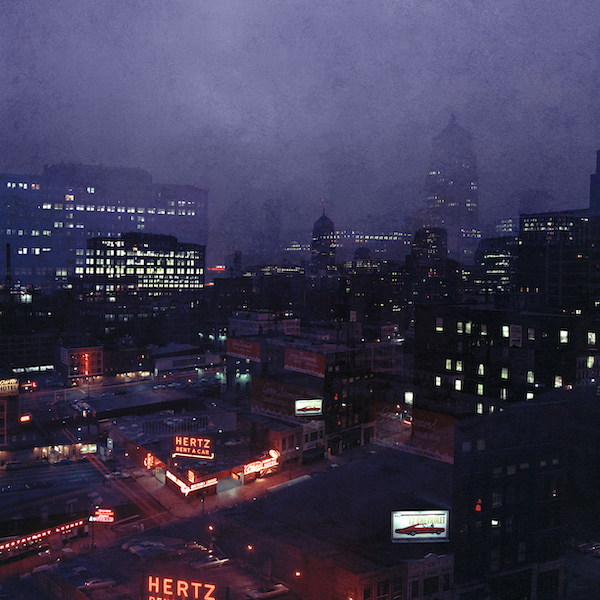
View from Hotel Room, Chicago, 1966
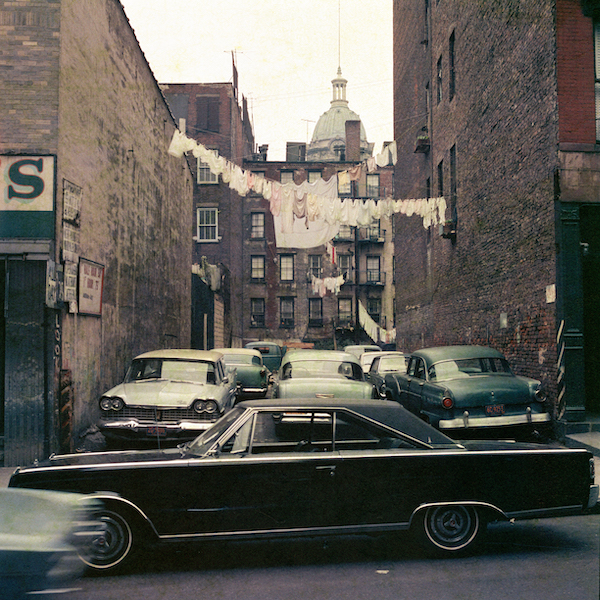
Black Plymouth Belvedere, Brooklyn, New York, 1967
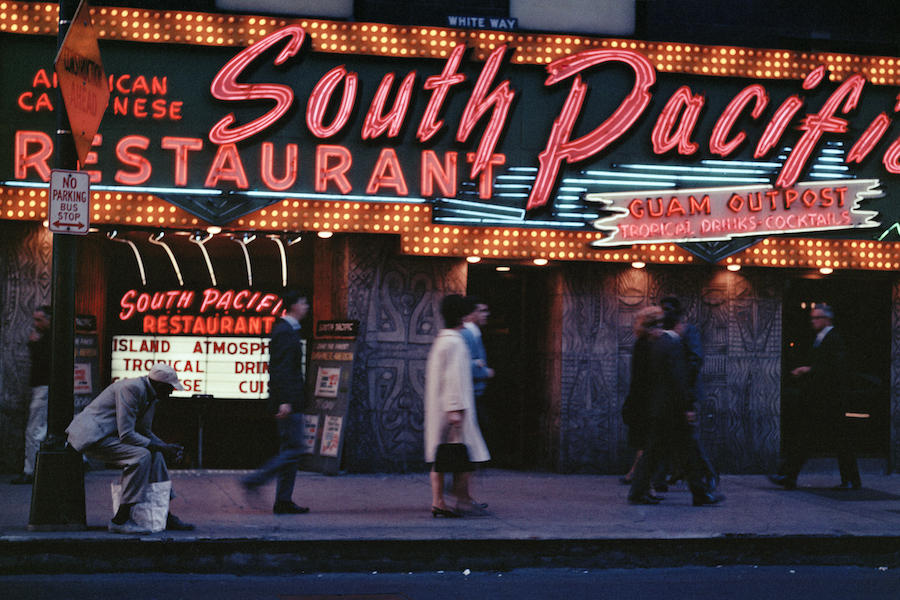
South Pacific Restaurant, Chicago, 1966
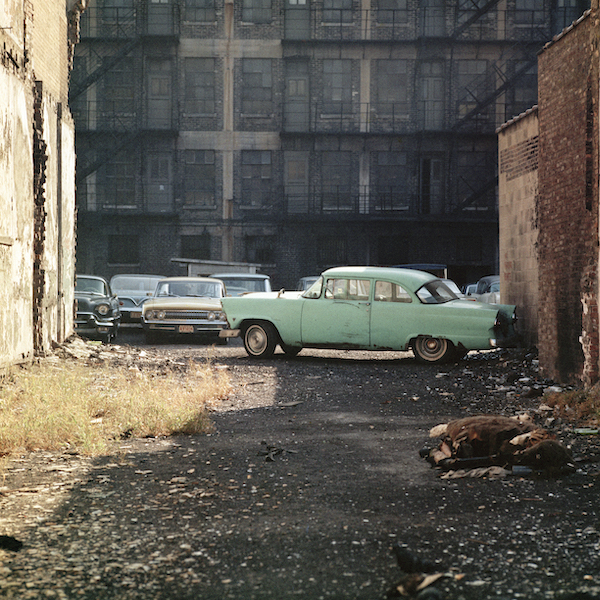
Green 1955 Ford, Chicago, 1966
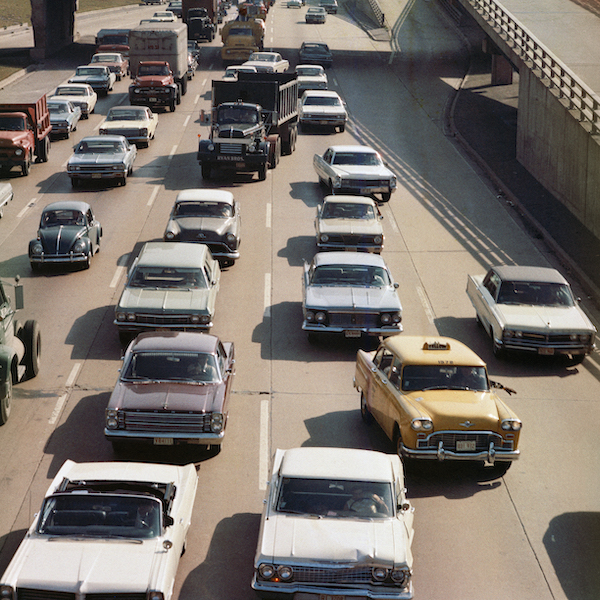
Yellow Cab, Chicago, 1966
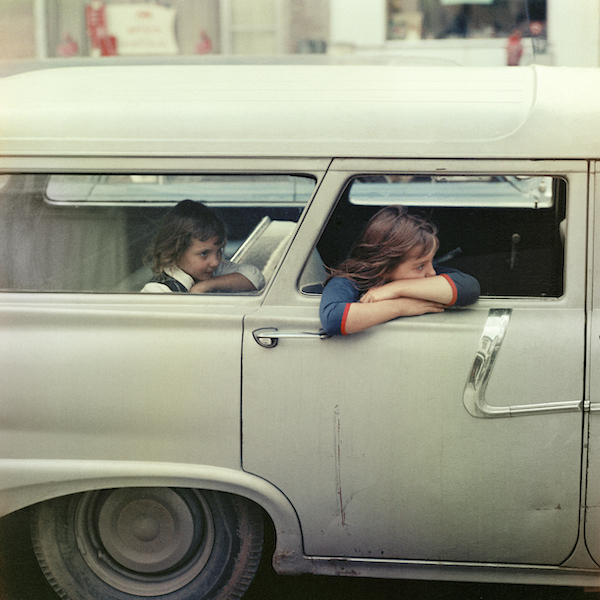
Girls in Station Wagon, Washington, 1967
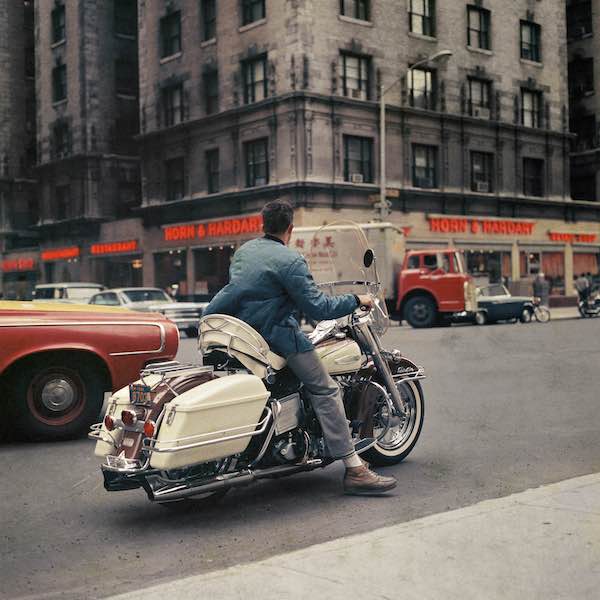
Harley Davidson Rider, New York, 1966
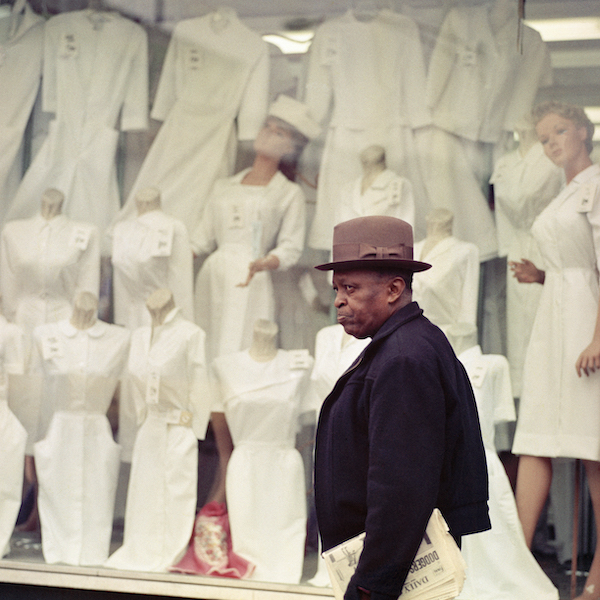
Nurses Outfitters, New York, 1966
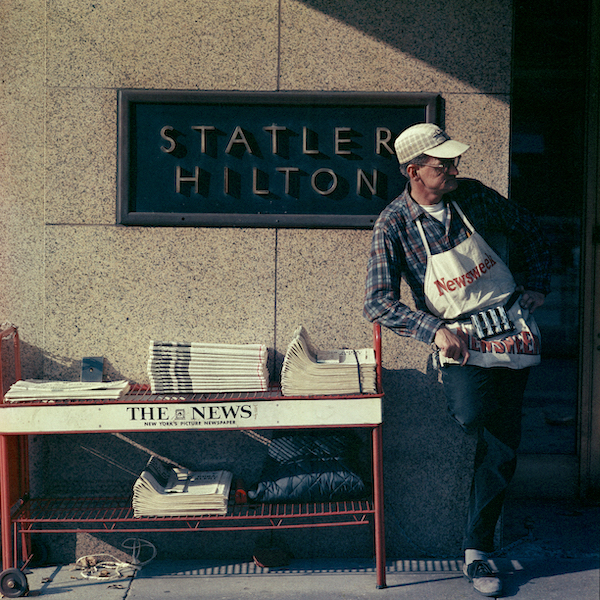
Newsstand, New York, 1966
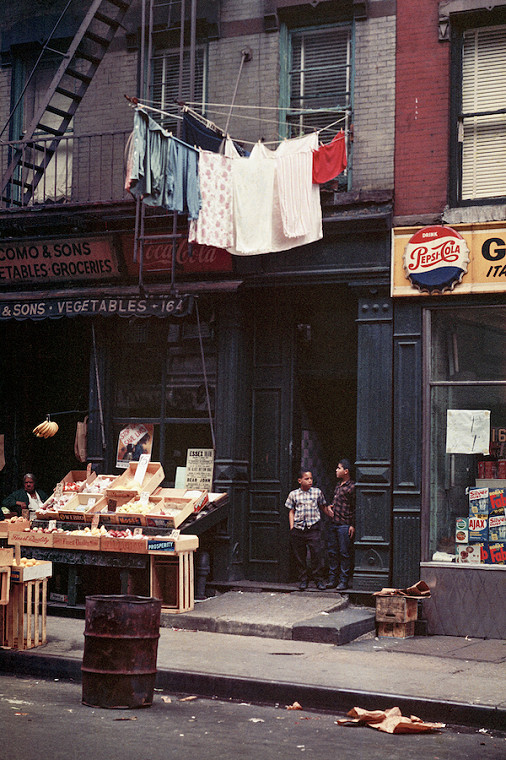
Brooklyn, New York, 1966
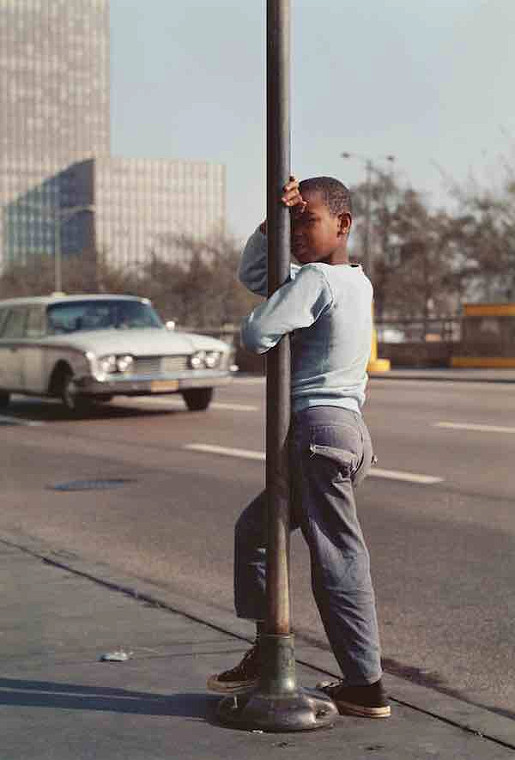
Boy at Bus Stop, Chicago, 1966
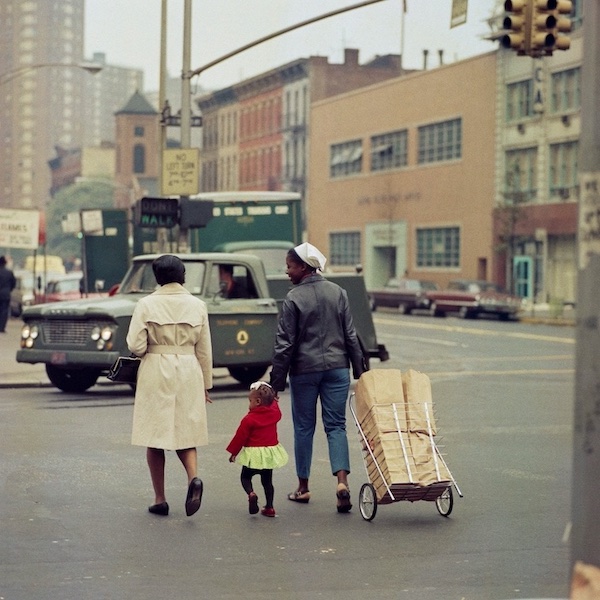
Grocery Shopping, Harlem, 1966
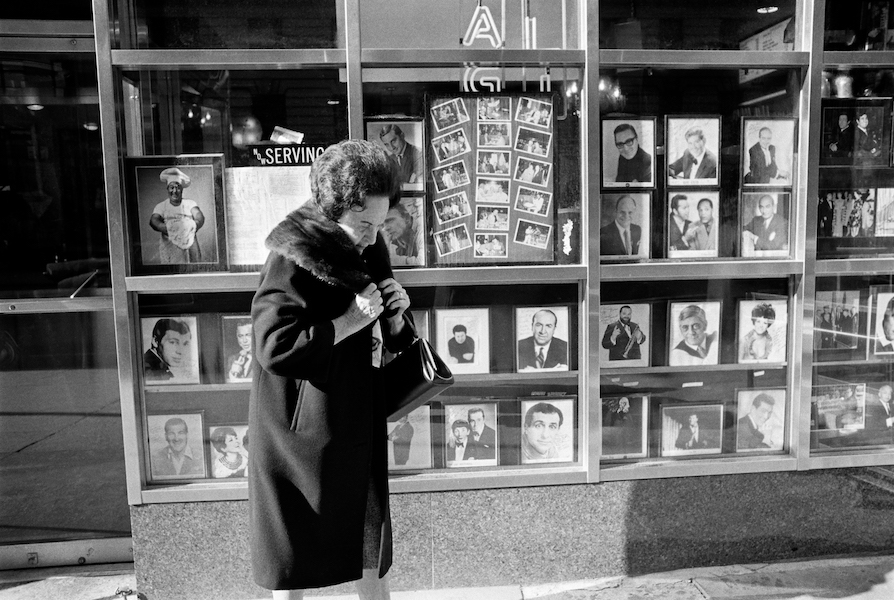
Lady in Fur Collared Coat, New York, 1969
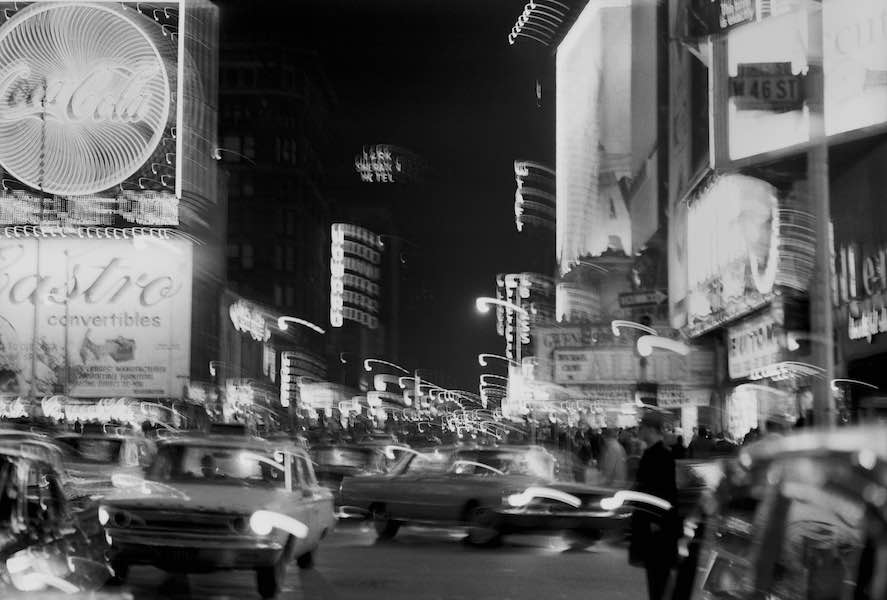
Broadway and Times Square at Night, New York, 1966
Mario Carnicelli – American Voyage (April 2018)
In 1966, Mario Carnicelli (born 1937), won first place in a national Italian photography competition, the prize was a scholarship to photograph America. Carnicelli approached the country as an outsider, and yet his perspective managed to capture the essence of the American experience. He was fascinated by the freedom offered by America, with its mix of cultures and traditions, its fashion and individuality, but at the same time he was aware of a pervading loneliness and rootlessness in people separated from family and clan.
Carnicelli told The Guardian that the restaurants all produced the same nauseating smell and there was a sense of loneliness, 'As a European, you imagined all this enormous wealth, but walking around there was also a lot of poverty.' When first exhibited in Milan in the 1960s, the title for the series was I’m Sorry, America. Carnicelli explains, 'I’m sorry, America, but this is how I saw you. I thought you’d be better than my dream. The dream remains, but my outlook was a critical one.'
With an eye informed by a love of New Wave cinema, Carnicelli’s photographs are truly compelling, offering a view of the American dream that is both optimistic and reflective. Unseen since the 1960s and only recently unearthed, Carnicelli’s images were shown at David Hill Gallery in 2018.
In 2022, Mario Carnicelli was awarded the lifetime achievement award at the inaugural Prix Viviane Esders. Mario is currently working on a new monograph that will cover his his 1964 series documenting the funeral of Togliatti, the three 1960s trips to the United States, and his South East Asian street photography.
Please mail info@davidhillgallery.net with any Mario Carnicelli exhibition print enquiries.
'With Mario Carnicelli, the word documentary takes on another dimension, as he engages in a true societal analysis, whether in black and white or in colour, in his native Italy or the United States. He seeks to reveal the essence of man rather than facts or gestures.’ Sophie Bernard
‘Influenced by the humanist approach of New Deal photographers such as Dorothea Lange, Carnicelli focused his lens not on the skyscrapers but on what was happening at street level.’ The Guardian